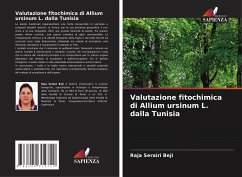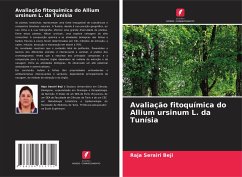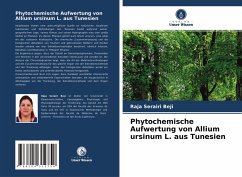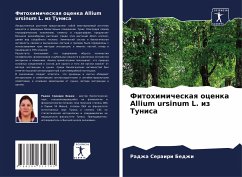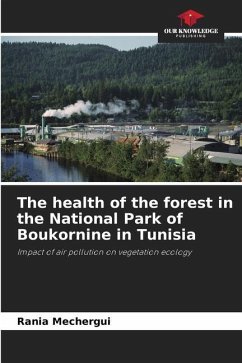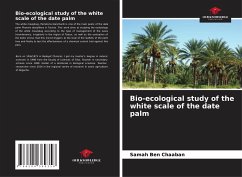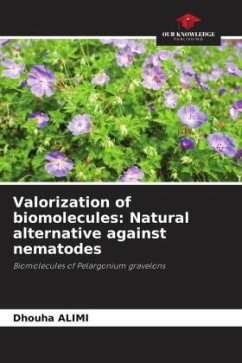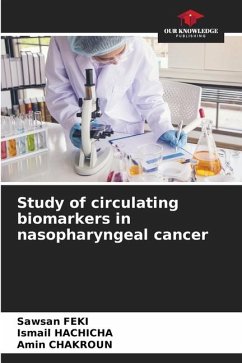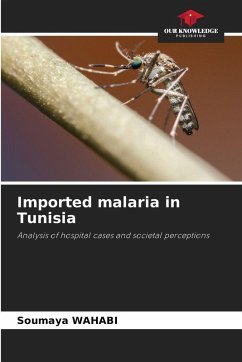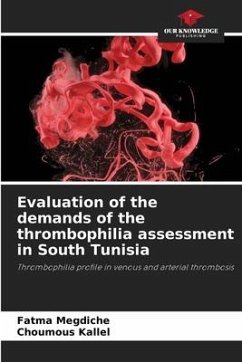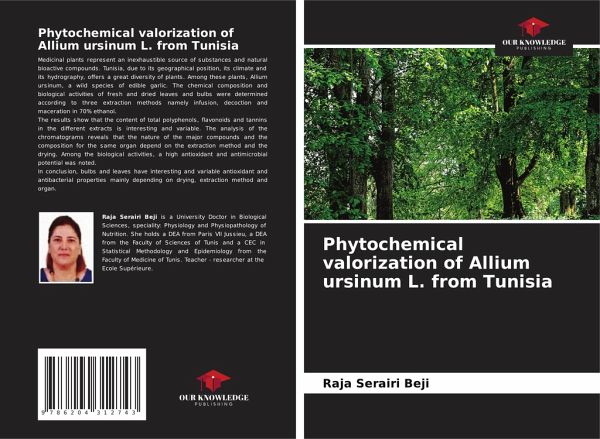
Phytochemical valorization of Allium ursinum L. from Tunisia
Versandkostenfrei!
Versandfertig in 6-10 Tagen
27,99 €
inkl. MwSt.

PAYBACK Punkte
14 °P sammeln!
Medicinal plants represent an inexhaustible source of substances and natural bioactive compounds. Tunisia, due to its geographical position, its climate and its hydrography, offers a great diversity of plants. Among these plants, Allium ursinum, a wild species of edible garlic. The chemical composition and biological activities of fresh and dried leaves and bulbs were determined according to three extraction methods namely infusion, decoction and maceration in 70% ethanol. The results show that the content of total polyphenols, flavonoids and tannins in the different extracts is interesting an...
Medicinal plants represent an inexhaustible source of substances and natural bioactive compounds. Tunisia, due to its geographical position, its climate and its hydrography, offers a great diversity of plants. Among these plants, Allium ursinum, a wild species of edible garlic. The chemical composition and biological activities of fresh and dried leaves and bulbs were determined according to three extraction methods namely infusion, decoction and maceration in 70% ethanol. The results show that the content of total polyphenols, flavonoids and tannins in the different extracts is interesting and variable. The analysis of the chromatograms reveals that the nature of the major compounds and the composition for the same organ depend on the extraction method and the drying. Among the biological activities, a high antioxidant and antimicrobial potential was noted. In conclusion, bulbs and leaves have interesting and variable antioxidant and antibacterial properties mainly depending on drying, extraction method and organ.



